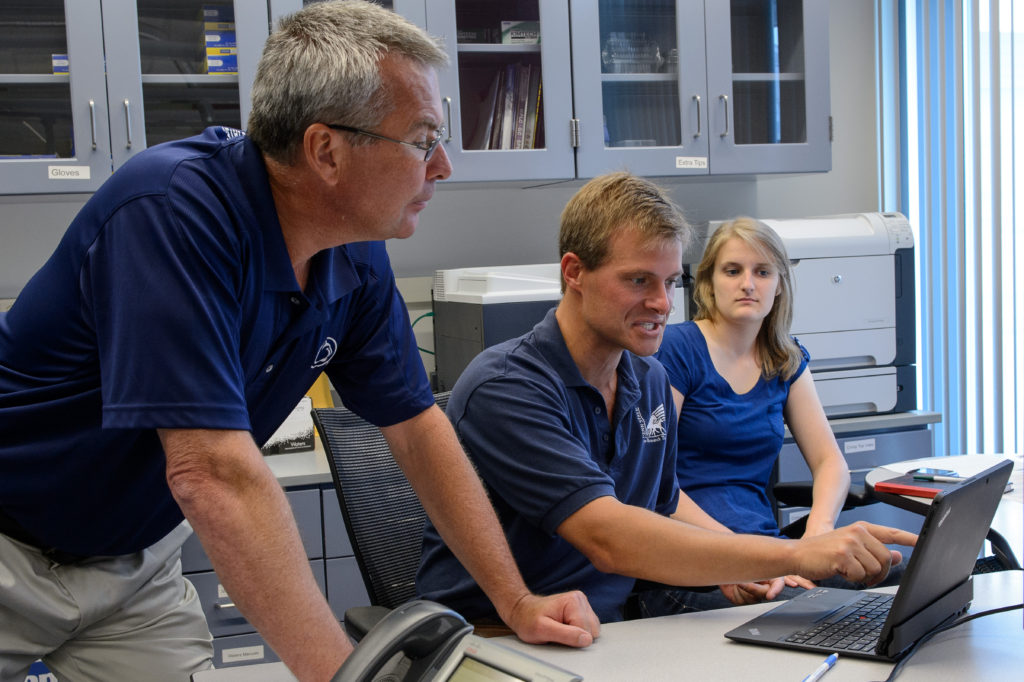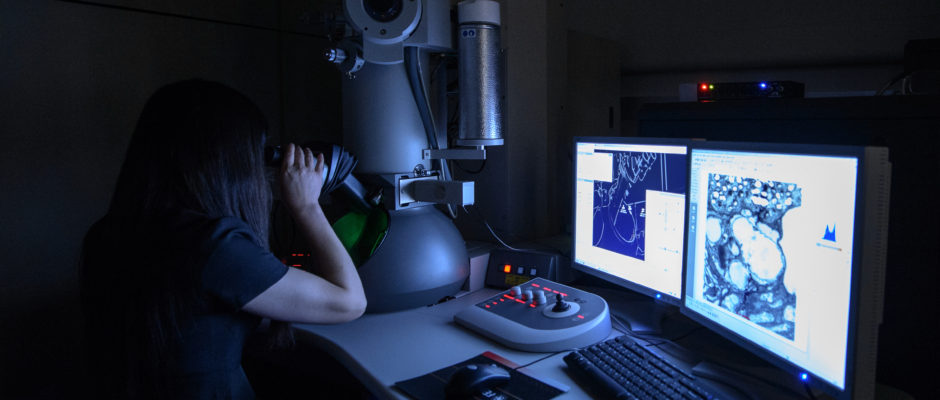Imagine a set of pipes treated with an insecticide that kills mosquitoes before they can get inside a house and infect the occupants with malaria. Or a fungus that can be coated onto walls to kill mosquitoes before they reach day 14, when they become able to transfer the disease.
Both are elegant solutions to a devastating global health problem, and both are being studied by researchers at the Huck Institutes of the Life Sciences at Penn State.
“Our goal is to put interdisciplinary teams together to examine issues of the day and try to seek solutions,” explains Peter Hudson, Huck’s director.

Huck was founded in 1996 to promote research and training in the life sciences at Penn State. Another goal was recruiting top faculty and providing them with state-of-the-art instrumentation, facilities and strong graduate programs. Huck currently supports about 500 researchers from its State College headquarters in the Millennium Science Complex.
Reaching across disciplines is key. For example, Huck has identified the “convergence of biological, engineering and material sciences” as a priority and added 10 new hires to its faculty. Hudson describes this synthesis as a “marriage with engineering…[we’re] developing engineering solutions for issues in the life sciences. They have the hammers, we have the nails.”
With the rapid increase in the production of large, complex and diverse datasets in the life sciences, Huck is also working to position Penn State “as the go-to place for developing and providing access to tools and technologies that assist in the management, analysis and dissemination of biological data,” according to its strategic plan.

Another focal point is “evolutionary risk assessment” — preventing or mitigating the consequences of issues such as antimicrobial resistance and adaptation to climate change. Hudson proposes using the Penn State campus as a living laboratory to promote the behavioral changes needed to address the enormous, worldwide health threat posed by widespread resistance to antibiotics.
Opportunities to commercialize research exist through Penn State’s entrepreneurial ecosystem, but launching profitable companies in not Huck’s primary mission. Instead it lies in work like the malaria projects — the insecticide-laden pipes are currently undergoing trials in Cote d’Ivoire.
“Does this reduce the rate at which people get malaria?” asks Hudson. “Our metric is reducing disease in people.”
ELISE VIDER is news editor of Keystone Edge.


